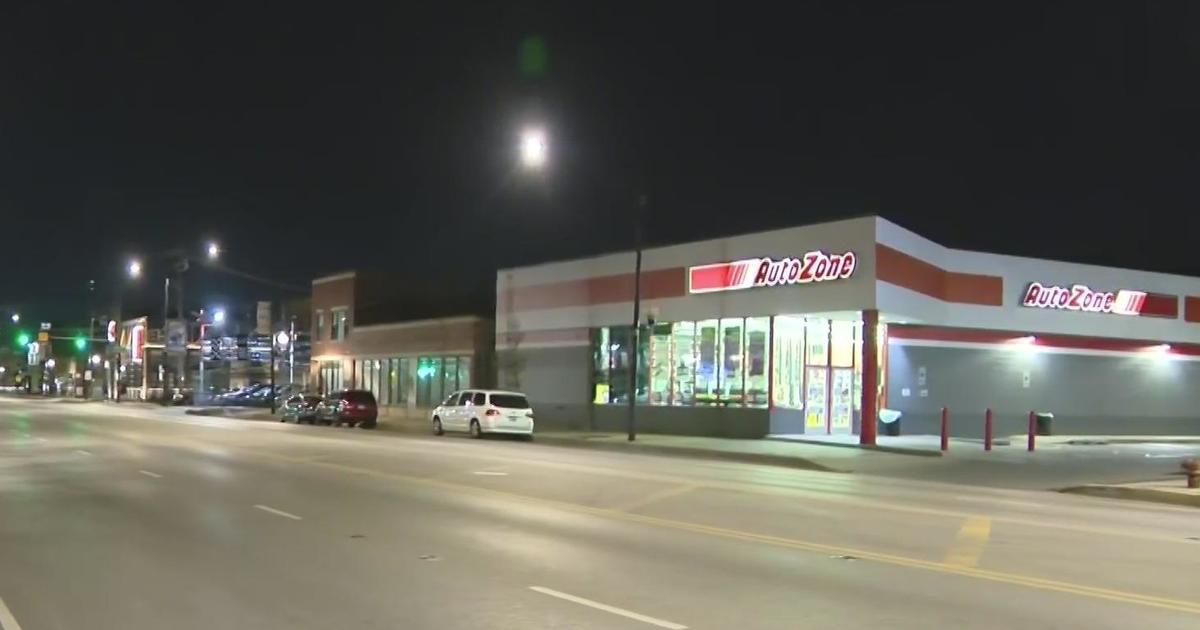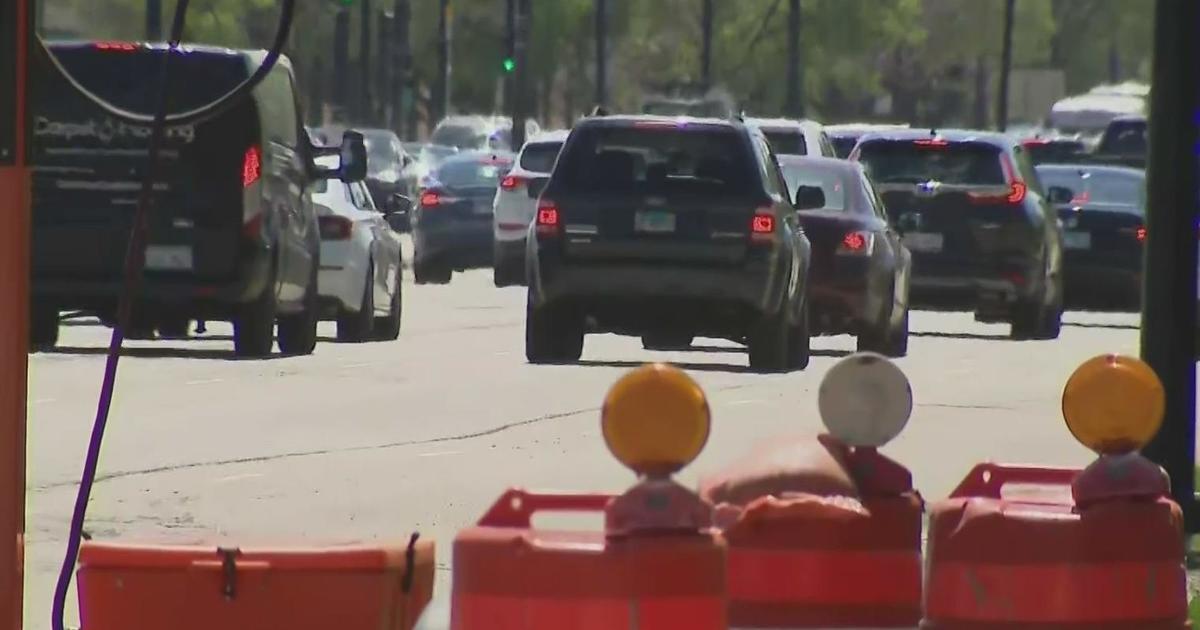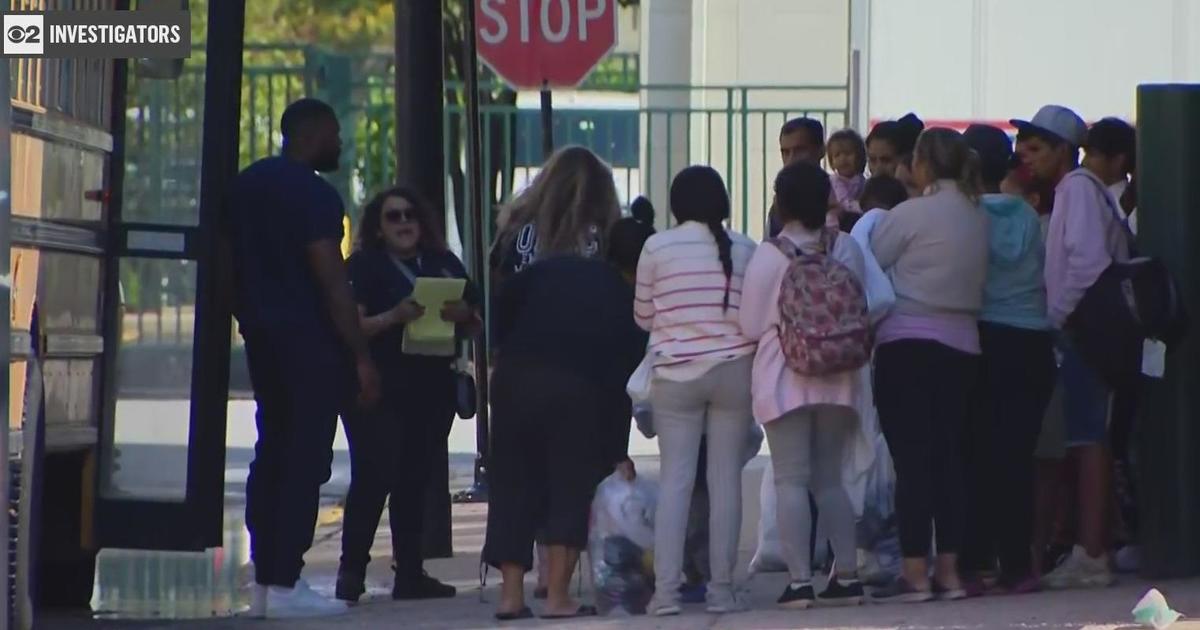Both Sides Say They Want Resolution Before Teacher Strike Could Happen
CHICAGO (CBS) -- More than 90 percent of teachers in the Chicago Public Schools voted to authorize a strike this week, in a move that the Chicago Teachers Union believes will provide a leg up in negotiations starting next month.
Speaking on the CBS 2 Morning News Tuesday, both Teachers Union vice president Jesse Sharkey and schools chief executive officer Jean-Claude Brizard said they want the conflict to be settled before a strike.
But critics, including Brizard, are slamming the union for taking the vote. They say teachers were given a false choice – a choice between a strike and nothing – when an independent fact-finder is set to come up with a compromise deal next month.
Sharkey says the claim about a "false choice" misses the point.
"What every teacher understood is that this was never a vote about striking. This was a vote to essentially give the union the bargaining power to try to negotiate a fair contract over the course of the summer," Sharkey said. "Questions about whether or not it will actually come to a strike – and we hope it doesn't; we hope to negotiate a good contract – will be dealt with, and will come to a head, as school gets ready to begin next fall.
The union has been calling for a significant raise of between 24 and 30 percent. The reasoning, CTU president Karen Lewis has said, is that teachers want to make up for a contractually-guaranteed 4 percent raise they were denied last year, and be compensated for the extra work that will result from the longer school day.
But speaking to CBS 2's Mike Parker on Monday, John Tillman, CEO of the Illinois Policy Institute – a conservative think tank – said the union is disconnected from reality.
"Chicago teachers on average, make $71,000," Tillman said. "The average taxpayer in the city of Chicago, makes about $48,000."
As for the union complaints that teachers are being overloaded with work, Tillman says: "Everybody's being asked to do more. Private workers all over the country and the state are being asked to do more, because times are tough."
Sharkey said the salaries of teachers should be stacked up against those of their peers, not those of every worker in the city.
"The average teacher has more than 10 years of experience and a Master's degree, and so I suppose it's not a fair comparison, because if you compare us to what people who have a similar level of education and experience make in the private sector, actually, we're undercompensated in those terms," he said.
Furthermore, Sharkey said, when the longer school day starts district-wide next school year, teachers essentially will be asked to work for free for nearly an hour and a half every day.
"The CTU's raise demand is connected to the Board of Education's school day demand, which is for 85 extra minutes of work a day, and seven extra workdays a year, and it's not as if you wanted to build an addition on your house, and you planned a $300 million addition, and the contractor said, 'Look, this is what it's going to cost,' and you could say to the contractor, 'I'd like you to do it for free, but all you would have to do is not pay the people who are going to work on it.' That's a non-starter for us," he said.
Sharkey said the 30 percent raise likely will not be the only acceptable figure for the union. But even if people are working more and getting paid less in the current economy, that still does not justify a 2 percent raise for 20 percent more work, he said.
And salaries are not the only issue with which teachers are concerned, Sharkey said.
"We want everyone to be clear that what we really care about are a series of things that are education demands," he said. "We'd like to have small classes. We'd like to have a better day, not just a longer day. We'd like to have fair compensation, and we'd like to have some job security, and those are, we think, fairly simple demands, and we think things which if the board negotiates with us in good faith, we can come to some kind of an agreement on."
Sharkey also posed a question to Brizard, wondering how the Chicago Public Schools would address an agreement if they cannot afford all the plans they want.
Speaking later on the CBS 2 Morning News, Brizard replied that the district will always be subject to budget constraints, but compensation for teachers is important regardless. So is the longer school day, he said.
"You know, we have a limited budget. We have to invest very smartly. The full school day is one. Supporting teachers and the folks who do the work every single day is another," Brizard said. "We don't have enough money to do everything, like hiring librarians and social workers in every single school. But teachers are critical to the work. The full school day is critical to our work, and we're going to resource that appropriately."
Brizard reiterated that the fact-finder's report due out next month should resolve many of the issues.
"This has been my argument, you know, we have a process in play allowed to actually happen. Twenty-nine, we think, is a bit much. Two was our opening offer to the union. We're going back and forth in the negotiation," he said. "So somewhere in there is the right number, and this person, I think, is smart enough and worldly enough to figure out what that's going to be."
And while both Brizard and union leaders have been highly public in the negotiation process, Brizard said there is a lot more going on behind the scenes – all with the goal of bringing the conflict to a resolution and averting a strike.
"We're meeting several times a week, and we've been very serious about the process. In fact, I've said, if the vote was 90 percent, 10 percent, 1 percent yes, our position pushing this process would not be different," he said. "We want this to come to a close. I have too many distractions right now in the district. We have work to do in moving our achievement. We've got some great progress going on. We've got so much more work to be done.
Another vote must be held if teachers seek for a strike to go ahead. Under the process laid out in state law, teachers could not strike until mid-August at the earliest.



